By: Nick Villavecer and Elly Felizarta, ACEN
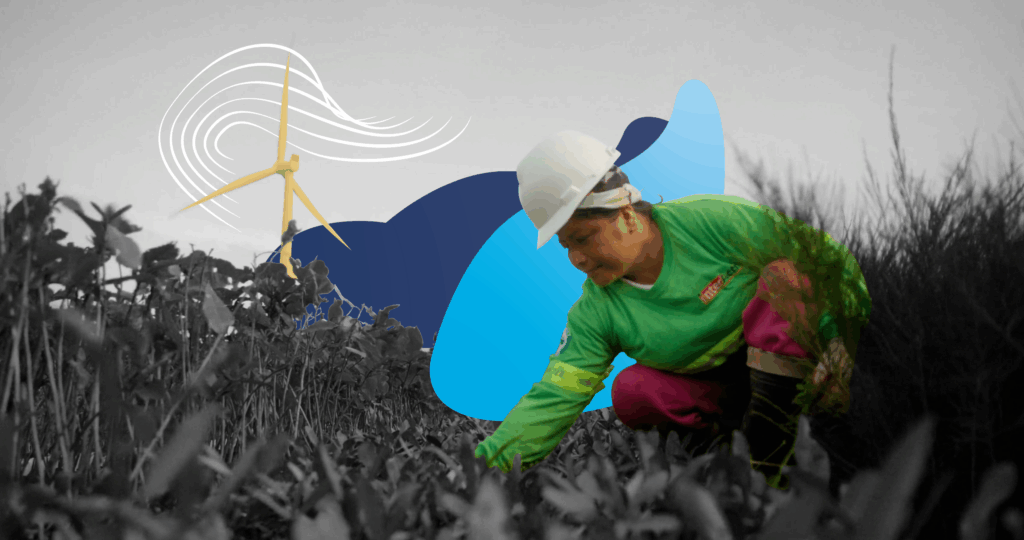
What do Japanese cucumbers, chili oil, and clean energy have in common? A lot more than you’d think.
Amid the turbines of ACEN’s 81 MW North Luzon Renewables (NLR) wind farm in Pagudpud, Ilocos Norte, something quietly remarkable is growing. Through the ACRE (Agro-Circularity in Renewable Energy) program—a collaboration between ACEN and online market platform SukiGrocer (formerly SariSuki)—farmers in ACEN’s Conservation Estate are evolving into agripreneurs.
They’re learning to grow high-value crops like Japanese cucumbers and siling labuyo, backed by modern, science-based farming techniques, and a farm-to-market system that empowers them to participate more actively in the agricultural value chain. The results speak for themselves. A pilot crop of Japanese cucumbers yielded 860 grams per plant, far exceeding the 500-gram benchmark. And the story doesn’t stop at the harvest.
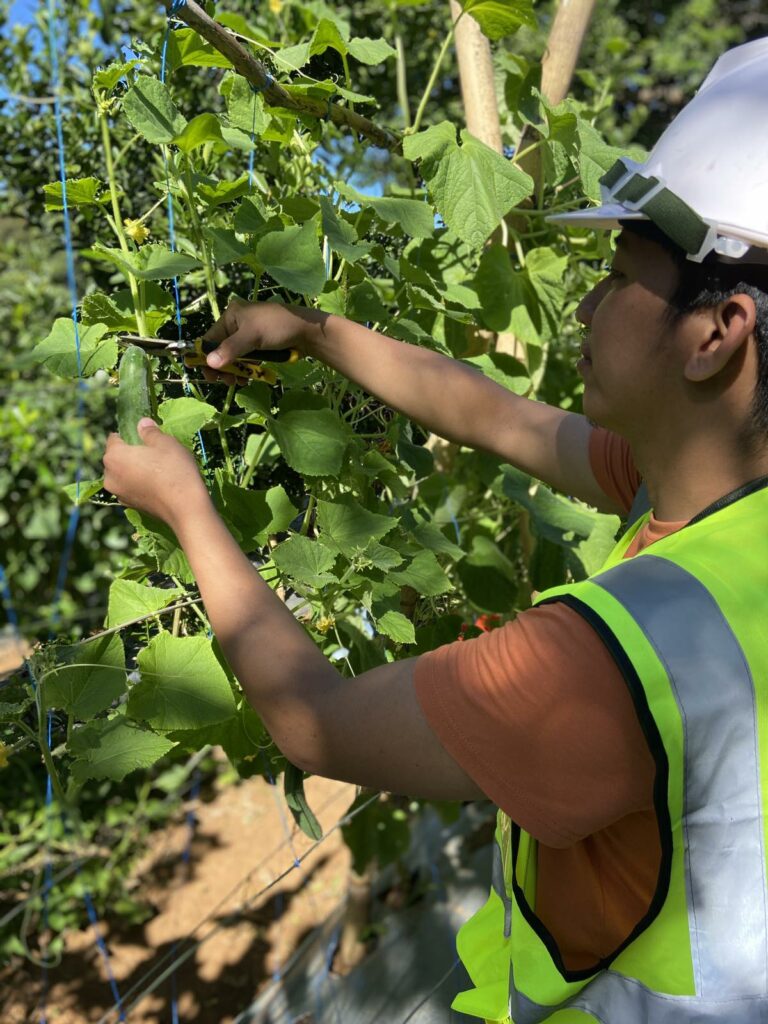
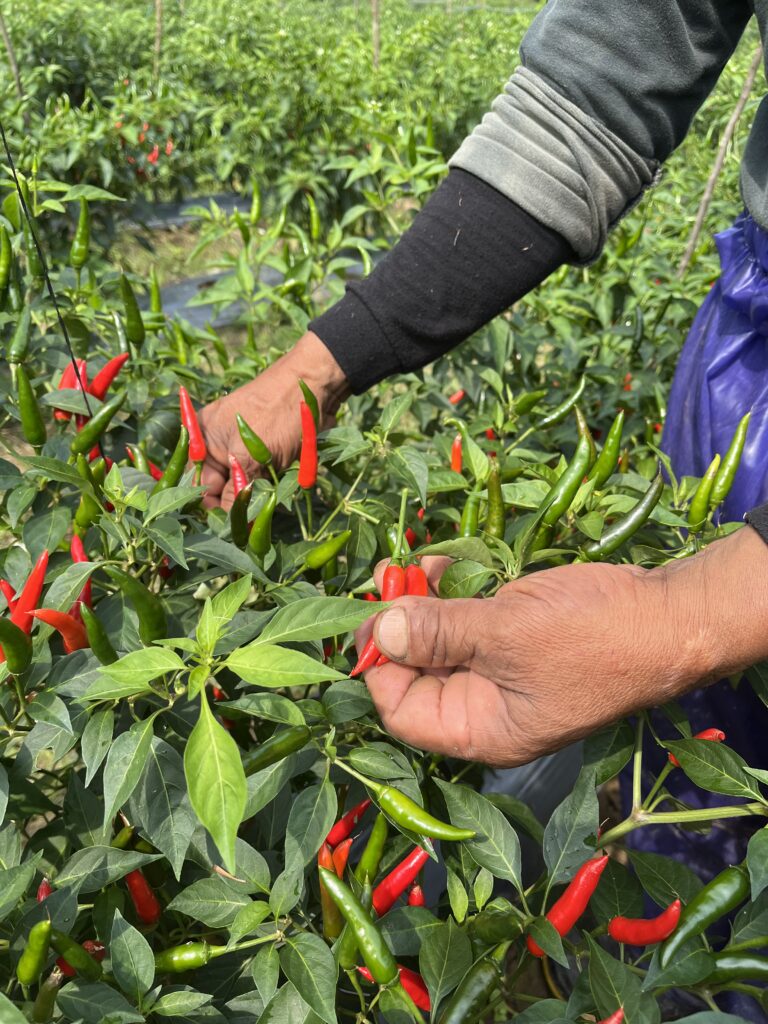
Leveraging the Ayala Ecosystem
These premium cucumbers are now served in well-loved restaurants like Yabu, Ippudo, and Kiwami under Standard Hospitality Group, many of which operate in Ayala Malls. What may seem like a simple supply chain connection is actually a meaningful synergy between Ayala businesses— where produce grown on renewable energy-powered land finds its way to plates in bustling urban centers.
For ACEN, this represents a tangible outcome of its commitment to regenerative practices and efforts to uplift host communities. For Ayala Malls, it offers a unique value proposition—supporting local, sustainably grown ingredients that align with its vision of enriching customer experiences while fostering inclusive development.
Together, this collaboration underscores the Ayala Group’s broader ambition: building integrated, purpose-driven ecosystems that create value across the board—from empowering smallholder farmers to enhancing retail and dining experiences. It’s not just farm-to-table. It’s a clear win for sustainability, shared prosperity, and the communities at the heart of it all.
What’s Heating Up Next
The ACRE program is also spicing things up—literally—with siling labuyo. In partnership with Salbahe, a premium local chili brand, farmers have taken a bold step beyond traditional farming by turning their chili harvests into value-added products like bottled chili oil, chili garlic, and chili bagoong.
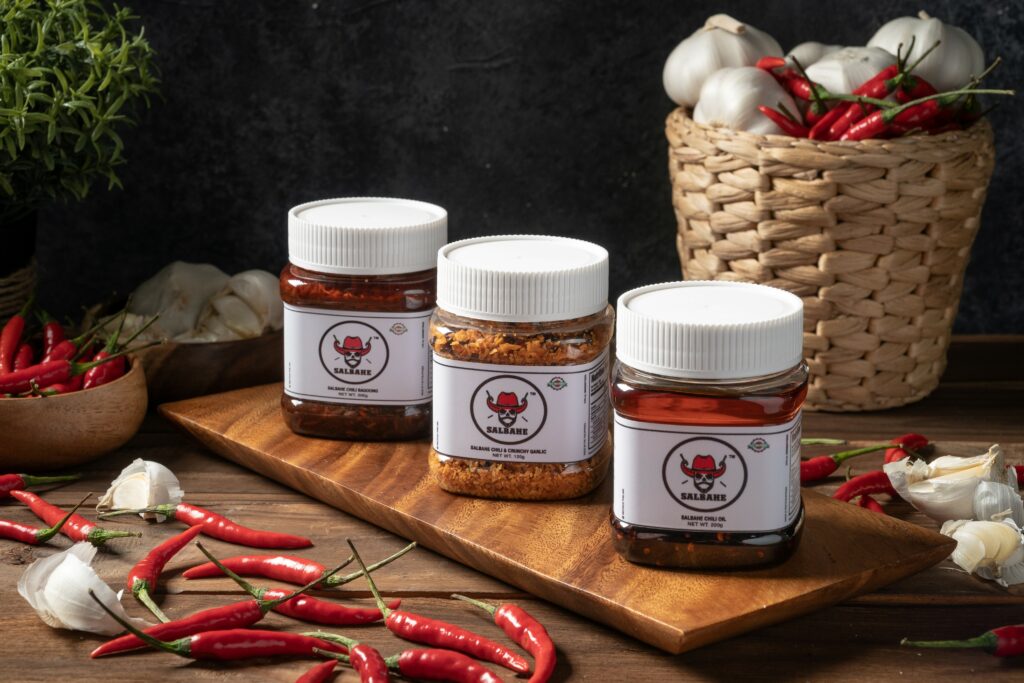
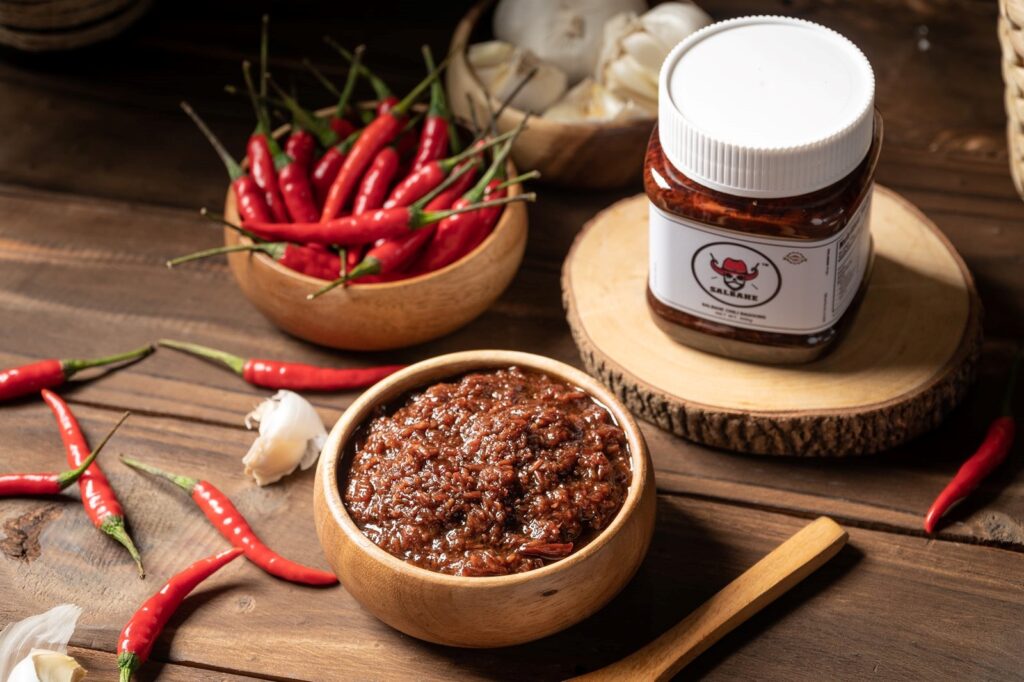
Farmers now co-produce bottled chili oil, chili garlic, and chili bagoong.
This post-harvest processing model has proven to be a game-change. Instead of selling their siling labuyo fresh at market price, farmers now co-produce value-added products. This shift opens the door to significantly higher income for farmers. By converting a typical chili harvest into bottled products, they can earn considerably more than by selling raw chilies alone. While fresh produce offers only a modest return after expenses, value-added processing enhances the profitability of each unit, paving the way for a more sustainable and rewarding livelihood.
It’s a powerful testament to how value addition doesn’t just increase income—it transforms livelihoods.
A Synergy That Grows with Purpose
The ACRE program is a compelling example of what’s possible when clean energy, sustainable agriculture, and a supportive business ecosystem come together. It’s not just about farming—it’s about transforming rural livelihoods, strengthening food systems, and showing how the Ayala Group’s interconnected businesses can plant the seeds of change, together.




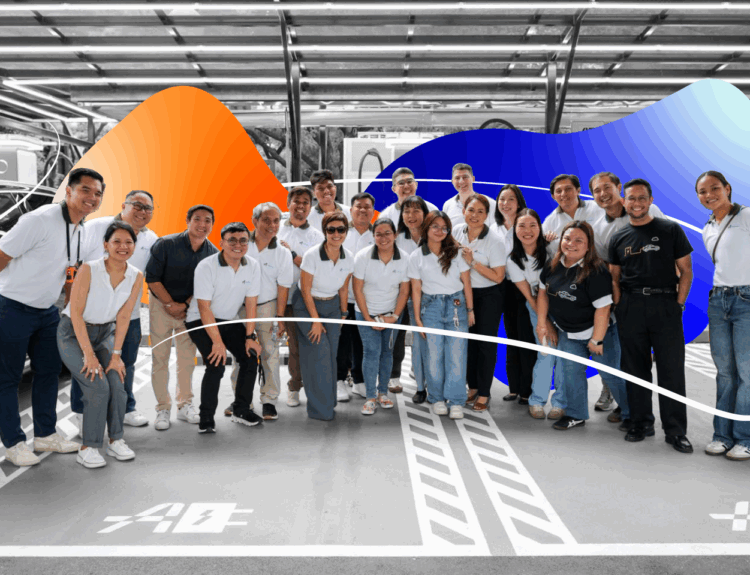
1 Comment
Bonifacio Mateo Banzon
8 months agoRenewable Energy plus Agriculture Planting makes business and economic sense. Also enhances farmer’s income and productivity and provides them with alternative crops other than rice where they are beset by low prices and cheap imported rice.